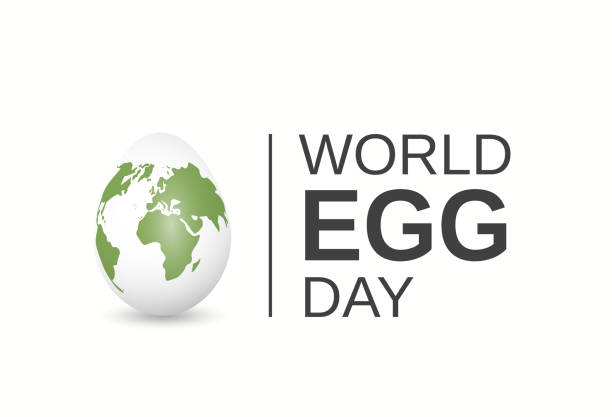By Deborah Bamisaye
World Egg Day is celebrated annually on the second Friday of October; this year (2025), it will be celebrated on October 10th. Is it worth it? Why set a day aside? This day was established in 1996 by the International Egg Commission to highlight the nutritional value and global importance of eggs as a source of affordable, high-quality protein.
The theme for World Egg Day 2025 is ‘The Mighty Egg: Packed with Natural Nutrition.’ This theme highlights the powerful role eggs play in nourishing people globally. Eggs are celebrated as a humble yet mighty whole food, naturally rich in 13 essential nutrients that support health and wellbeing at every stage of life. The campaign emphasizes eggs’ versatility, nutritional benefits, and their contribution to local food systems worldwide.

Eggs? Why Take Them?
Eggs are highly nutritious and contain a variety of essential nutrients including:
· Proteins: Eggs provide a complete source of high-quality protein containing all nine essential amino acids.
· Vitamins: Eggs contain vitamin A, D, E, K, and several B vitamins including B12 (cobalamin), B2 (riboflavin), B7 (biotin), B5 (pantothenic acid), B6, B9 (folate), and B1 (thiamin).
· Minerals: Eggs are rich in minerals such as phosphorus, calcium, potassium, sodium, iron, magnesium, manganese, selenium, zinc, copper, and iodine.
· Choline: Important for brain development and function.
· Carotenoids: Lutein and zeaxanthin, which help maintain eye health.
· Fats: Eggs contain mostly healthy unsaturated fats along with cholesterol.
The egg yolk is especially nutrient-dense, providing most of the fat-soluble vitamins, choline, folate, iron, and about half the protein, while the egg white contains mainly water, protein, and some minerals.
Overall, eggs pack 13 essential vitamins, 11 minerals, complete protein, omega-6 and omega-3 fatty acids, and carotenoids, making them a nutrient-rich whole food.

Trust Me, Mothers Will Vote for Anything that Can Boost Brain Health
Eggs have vitamins and minerals that support brain health for everyone including children and trust mothers – they won’t joke with that.
– Choline: One of the best sources in eggs, choline helps produce acetylcholine, a neurotransmitter essential for memory and learning. It also supports brain cell signaling and cognitive function, especially important as we age.
– Selenium: Eggs provide over 20% of the daily selenium value. Selenium acts as an antioxidant, protecting brain cells from oxidative damage and may aid memory and cognitive function.
– Vitamin D: Eggs contain about 30% of the daily value of vitamin D, which supports brain function and may have protective effects against cognitive decline.
– Lutein and Zeaxanthin: These antioxidants in egg yolks help reduce inflammation, potentially lowering risks of Alzheimer’s and dementia.
– Vitamin B12: Important for nerve health and cognitive function, vitamin B12 in eggs plays a role in maintaining normal brain processes.
– Iron and Zinc: Minerals that support brain development, memory, and cognitive performance found in moderate amounts in eggs.
Together, these nutrients contribute to brain cell protection, memory, learning, and overall cognitive health.
Ever heard, ‘An apple a day, keeps the doctor away?’ Can same be said of eggs, and what could be the daily intake that would adequately meet our nutritional needs?
To get the recommended daily nutrients from eggs, eating about 1 to 2 eggs per day is typically sufficient for most healthy adults. This amount provides key nutrients like high-quality protein, choline, vitamin D, B vitamins, and essential minerals without exceeding healthy cholesterol levels.
One or two eggs a day can cover a substantial part of the body’s daily requirements for these important nutrients, especially choline and vitamin D, which are harder to obtain in adequate amounts from other foods.

Avoid Eggs If:
People who should avoid eating eggs or consume them with caution include:
· Individuals with an egg allergy: This can cause severe immune reactions ranging from skin rashes, gastrointestinal symptoms, respiratory issues, to life-threatening anaphylaxis. Egg allergy is most common in children but can persist into adulthood.
· People with familial hypercholesterolemia: This genetic condition leads to very high blood cholesterol levels, and reducing dietary cholesterol, including eggs, is important to manage heart disease risk.
· Dietary cholesterol hyper-responders: Some people experience significant increases in blood cholesterol levels after eating eggs and other high-cholesterol foods and may need to limit or avoid egg yolks.
· Individuals with certain genetic variants (e.g., ApoE4 gene): They may have an increased risk of elevated cholesterol and heart disease with high egg consumption, although moderate intake might still be safe.
· People diagnosed with egg intolerance: These individuals can suffer digestive discomfort like nausea, cramping, or diarrhea after eating eggs and may need to avoid or limit egg.
Those with diabetes or heart disease risk factors should also monitor egg intake and consult healthcare providers for personalized advice, though recent evidence shows moderate egg consumption may not significantly increase cardiovascular risk in many cases.
Let’s take some Advice from some Experts:
Nigerian doctors and nutritionists have varied perspectives on egg consumption, emphasizing both its benefits and cautions:
– The Poultry Association of Nigeria encourages Nigerians to eat eggs daily, highlighting eggs’ nutritional benefits such as boosting the immune system and improving vision. They consider eggs suitable for all age groups, with no specific limit on daily intake, and emphasize that eating eggs is more nutritious and economical than soft drinks.
– Some nutritionists like Olusola Malomo, caution against high egg consumption, especially for people who are overweight or have a BMI over 25. He advises limiting intake to about three eggs per week to avoid risks associated with high cholesterol, hypertension, and possibly brain cancer. He specifically recommends one egg per day for young children (6 months to 5 years) but cautions adults to moderate their intake.
– Dr. Emmanuel Onyeka advises against drinking raw eggs to prevent the risk of bird flu virus transmission, showing concern for food safety rather than the nutritional content.
– Nutritional advice for children under five from physicians like Modupe Akinyinka stresses the importance of eggs as part of a protein-rich diet critical for growth, recommending three to four eggs weekly for young children alongside other diverse foods.
– Additional expert advice suggests the amount of eggs a person should eat daily depends on physical activity and health status. For example, physically active people may eat more egg whites and yolks, while those with diabetes or high cholesterol should be more cautious, preferring boiled eggs and limiting egg yolk intake.
Overall, Nigerian nutritionists generally regard eggs as a nutritious food that supports immune function, vision, and child development, but moderation is advised for adults with certain health risks, and raw egg consumption is discouraged for safety reasons. This nuanced view balances the health benefits and potential risks of egg consumption as expressed by Nigerian health experts.





